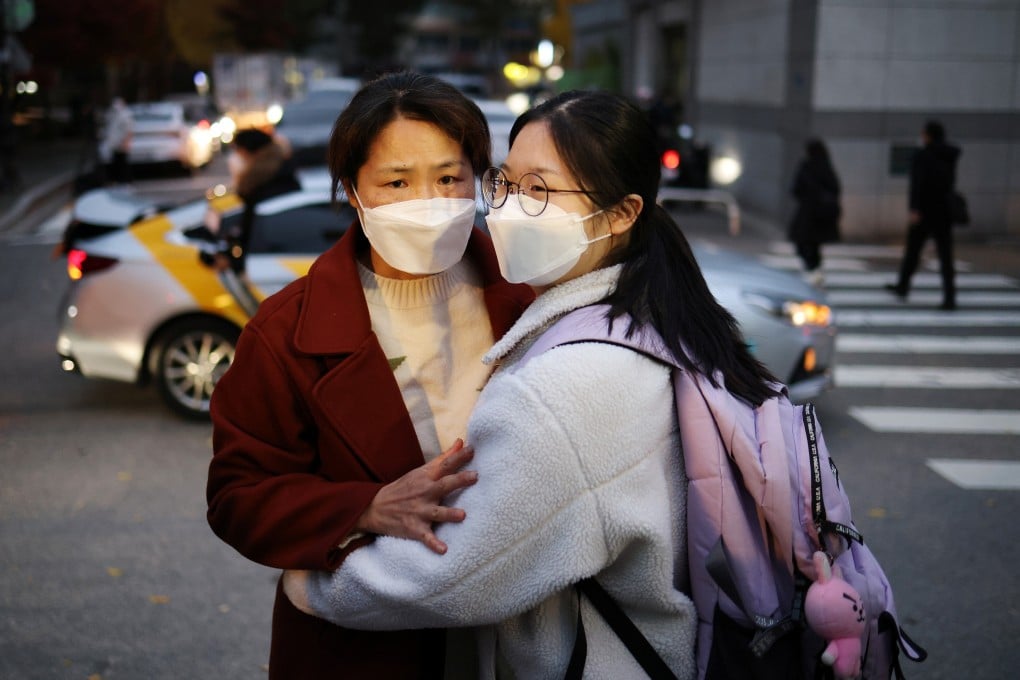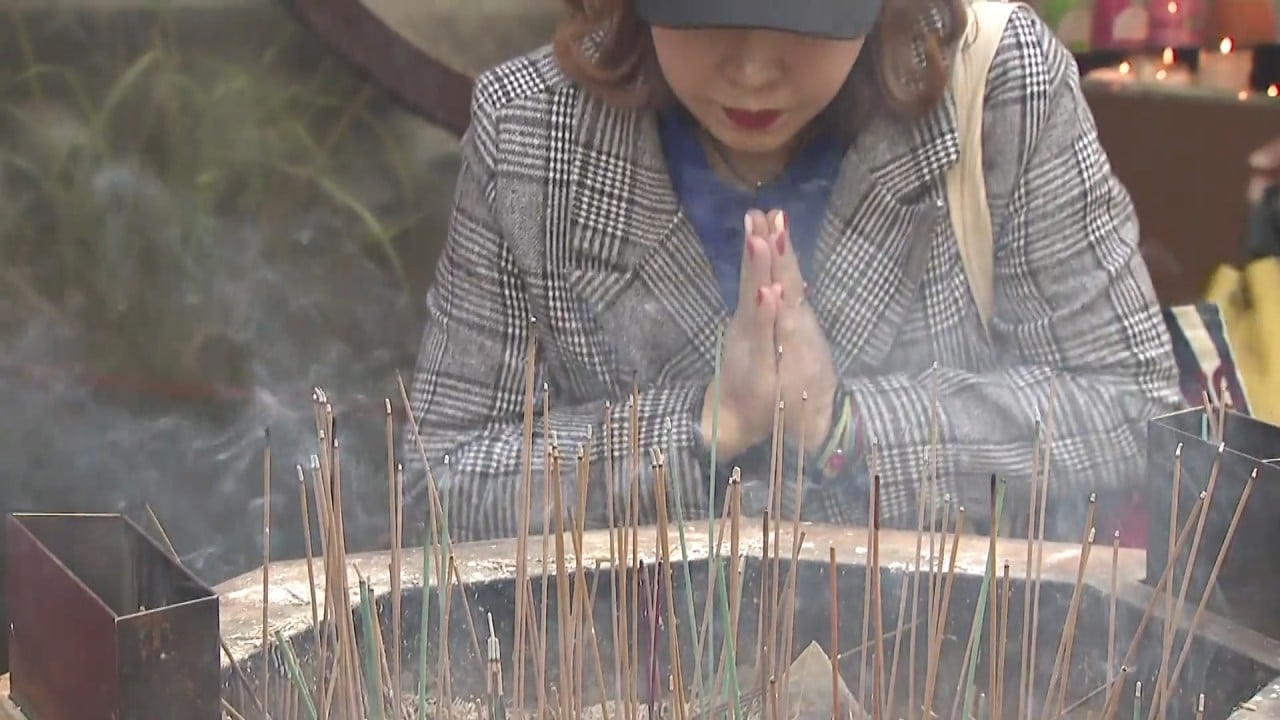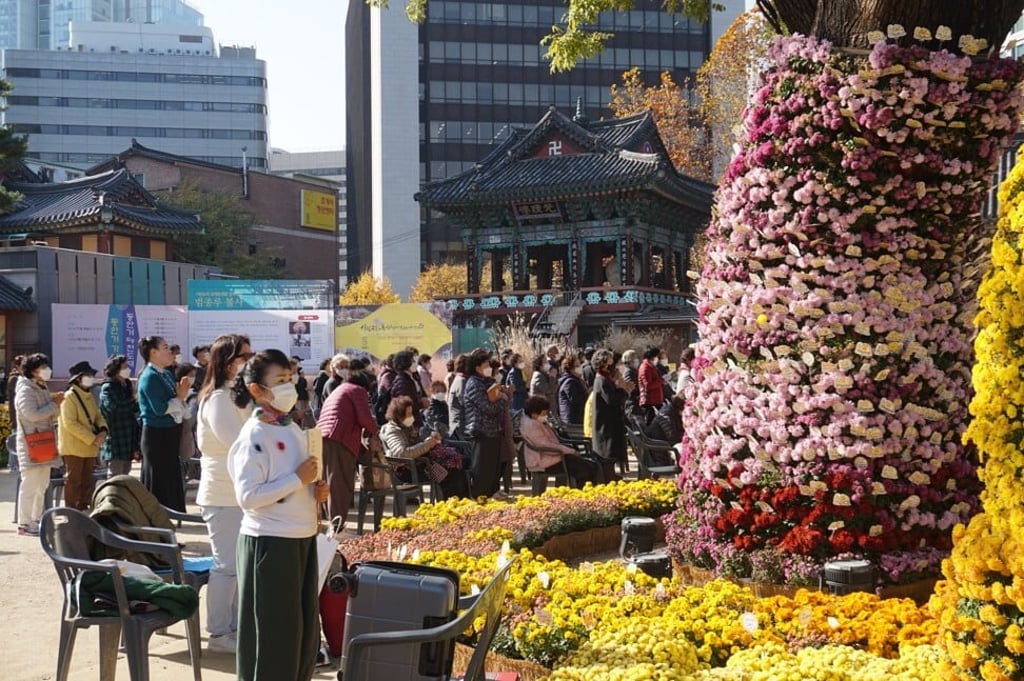South Korea’s infamous 8-hour Suneung college exam faces growing protests amid fears over students’ mental health
- On the third Thursday of November every year, a hush descends on South Korea as nationwide its students sit the notoriously high-pressured exam, on which much of their lives will depend
- But the exam faces questions of its own. Not only has it been linked to mental health problems among the young, critics say it is too focused on rote learning and needs a rethink

Every year around this time, parents and grandparents visit this historic temple to pray for their children and grandchildren who will be taking the infamously high-pressured Suneung college entrance exam.
This particular crowd follows the monks in prayer outside the temple; inside the temple another group finishes the final day of their 100-day Suneung prayer regime.

01:24
Korean parents pray for their children before major college entrance exam
The length of the ritual reflects the magnitude of the test, which occurs nationwide on the third Thursday of November every year and is officially known as the College Scholastic Ability Test (CSAT).
During the eight-hour exam, all students will be given a grade of 1 to 9 (with 1 being the highest) on each of the core subjects: Korean, mathematics, English, Korean history; and the subordinate subjects of social science, science, vocational studies and either a second foreign language or Chinese characters.

It is not only praying parents and stressed out students who recognise the enormity of the task ahead, but the whole of society.